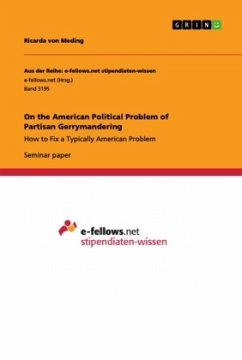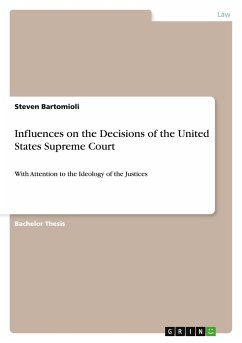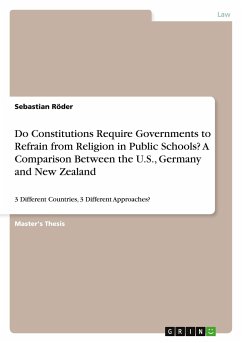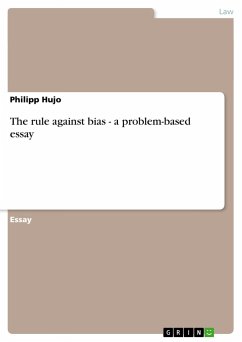Seminar paper from the year 2018 in the subject Law - Comparative Legal Systems, Comparative Law, grade: 16, University of Passau, language: English, abstract: This work is a systematic approach to one of the major problems within the American voting system, namely partisan gerrymandering. In response to the urgency of solving the problem of partisan gerrymandering, the origins of gerrymandering are depicted, followed by a comparison of suggested standards and solutions which have been proposed in light of recent court decisions, and an analysis of why none of them can satisfactorily solve the problem. Therefore, this paper takes a different approach and outlines how the problem can be diminished and ideally prevented in the future by approaching the problem in a more fundamental way.The right to cast an effective, meaningful vote in fair elections is at the core of every democratic system of government around the world. Even though this right has been embedded in the U.S. Constitution more than 200 years ago, the United States is now struggling more than ever before to provide this exact right to voting citizens. Partisan gerrymandering, the division of geographic areas into voting districts in a way that gives one party an unfair advantage in elections, increasingly poses a threat to the constitutional integrity of U.S.-American elections.Recently, the United States Supreme Court once again refused to set out a standard on the constitutionality of partisan gerrymandering in two cases pending before it, delaying a clear answer to this perennial problem for another few years. This continues to leave lower courts, political scientists and legal scholars second-guessing the Supreme Court's possible approach in the future.
Hinweis: Dieser Artikel kann nur an eine deutsche Lieferadresse ausgeliefert werden.
Hinweis: Dieser Artikel kann nur an eine deutsche Lieferadresse ausgeliefert werden.








